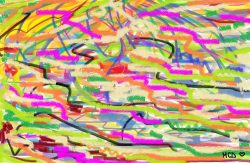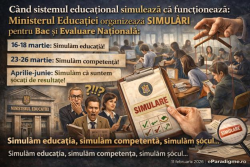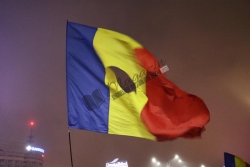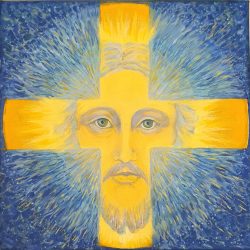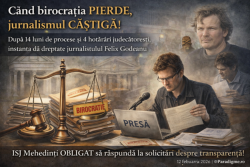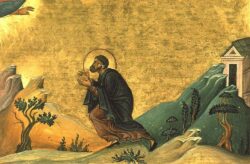TEACHING LITERARY TEXTS THROUGH MULTIDISCIPLINARY APPROACH

Bătrână citind - Glasul info
CONSTANTIN CRISTINA,
Colegiul “Stefan Odobleja”,
Craiova, jud. Dolj
When thinking about the literature lessons, most students automatically think about the long monologue where the teacher is trying to explain the possible meanings of the text they are going to study, and also about the talk about the author’s life and work.
Traditionally, the school curriculum has been rigidly compartmentalized. Yet, linkages between disciplines in the curriculum increasingly are being made, such as the connections of English to History courses in many high schools. Another connection may be English with World Geography courses. Students of every ability level could benefit from exploring the interrelationship between these two disciplines and not only these.
In most of schools teachers try to teach literature, often having to introduce some literary work that the students are not prepared to understand, or their level of language is not developed enough to enable them to fully understand the work of art presented in the lesson.
Most of our students have limited linguistic, critical or analytical skills, so when they think about the literature classes, they usually feel bored or confused. For them it becomes an unpleasant experience.
Traditionally, the teaching of English literature has remained teacher-centered or teacher- directed. The literary texts are presented through summaries or lectures, so the students have almost no involvement in the interpretation or appreciation on the literary texts presented to them.
The term literature refers to novels, short stories, poetry, plays, and folk tales. It consists of narrative as opposed to expository forms of writing that are found in traditional textbooks, reference books, and news articles. By no means, however, should literature be the sole tool used to teach geography or other subjects of the social studies. Rather, each form of narrative and expository writing has its place in the social studies curriculum
But how can a student be interested in a text when he has to answer stereotyped questions, or make biographical summaries? The students usually have to listen to teacher’s critical analysis of the texts, where the texts are considered as “finished products, to be unilaterally decoded, analyzed and explained, or they are used to illustrate grammatical rules and enrich the readers’ vocabulary.”(Kramsch, 1985:356).
Well, the answer is simple. Just teach literature through different disciplines. There are many disciplines that can be helpful when teaching literature.
Methods and techniques of investigation
Given the multidimensional and the cross-curricular dimension of the educational performance, the investigation methods that are being used vary to a great extent. Although the methods used are of unequal value, they are generally complementary. In order to obtain the most reliable, objective and conclusive data, it is of great importance for these methods to be used differentiated, but also combined. The following methods have been used throughout the pedagogical research:
- Observation: This method has been used along all the phases of the research so as to record different aspects that could be noticed during the assessment activities undertaken. Many aspects of the students’ involvement in the activities have been under analysis: the reaction of different students in different situations, their attitude and the manner of approaching the assessing activities of a more creative kind, their level of expectation, the degree of involvement when working in groups or pairs, their behaviour during the tense moments of solving a more difficult task, the extent to which the rules of the ‘game’ were obeyed, the common mistakes and the students’ feedback at the end of the activities suggested.
- The method of investigation by means of questionnaires. Students in both classes had to fill in questionnaires to determine their level of expectation, so as to identify those whose level of expectation is higher than the others’. A second questionnaire has been administered to the parents of the students involved in the pedagogical experiment to gather information on each student’s psychological and pedagogical particularities
- The method of investigation by means of tests. The test has been chosen as a tool of investigation by using different items, elaborated with the purpose of identifying the students’ level of knowledge, the degree of the development of their ability to communicate accurately and fluently, of their intelligence and competence to use grammatical structures in English.
- The method of analyzing the end products of the activities suggested. This method allowed the proponents of the pedagogical experiment to analyze the end products of the activities suggested (portfolios, essay texts, posters, class magazines) in order to determine the extent to which these alternative methods of assessment raise the students’ interest towards learning a foreign language and match their level of expectation and their intelligence.
- The method of the experiment. This method has set the basis in structuring the layout of the content and the methodological development of the pedagogical research. The research has covered all the steps.
- The initial phase: I have chosen the sample group; the data regarding the variables involved in the experiment have been registered; the hypothesis, the aims of the research, its type and the strategy of the development of the experiment have all been previously settled.
Throughout the development of the experiment the following variables have been dealt with:
- Independent variables – represent the changes willingly introduced to influence the development of the pedagogical facts in order to study their effects. These were: strategies of assessing the students’ knowledge of the English literature (heuristic strategies, creative strategies meant to raise the students’ spontaneity and originality and also mixed strategies); alternative methods of assessing the students’ knowledge ( poster projects, interviews, magazine articles, quizzes, board games).
- Dependent variables – refer to the changes registered after introducing the experimental measures. One dependent variable of the pedagogical experiment is the students’ improvement of the educational performance. Significant alteration in the students’ self confidence, motivation and pleasure in working in groups, a higher level of knowledge and desire to learn have been also noticed throughout the research.
- Intermediate variables – refer to the assessment competence of the teacher, how reliable the tests or the alternative assessment methods chosen are, the students’ level of knowledge and their motivation to study in order to get better educational performance.
- The experimental phase. Multimedia equipment has been used in the experimental class in order to prove the hypothesis stated at the beginning of the pedagogical research right or wrong. Aspects such as the students’ motivation towards learning, their attitude towards the teaching methods and the improvement in their understanding and accuracy when communicating in a foreign language have been under analysis.
- The final results phase. After the final test was given to both classes, both the witness and the experimental one, the results have been analysed and the differences in the students’ educational performance have been discussed upon.
- Methods of processing the data of the research – have been used to measure the results and reach some conclusions regarding the efficiency of the alternative teaching methods used.
REFERENCES:
• Fowler, R. (1986). Linguistic criticism. Oxford: Oxford University Press.
• Gilroy, M. and B. Parkinson. (1997). Teaching literature in a foreign language. Language Teaching, 29: 213-225.
• Goodwyn, A. and K. Findlay (2002). Literature, literacy and the discourses of English teaching in England: A case study. L1-Educational Studies in Language and Literature, 2: 221-238.
• Gower, R. (1986). Can stylistic analysis help the EFL learner to read literature? ELT Journal, 40/2:125-130.
• Gower, R. and M. Pearson (1986). Reading literature. London: Longman.
• Hafiz, F.M. and I. Tudor (1989). Extensive reading and the development of language skills. ELT Journal, 43/1:4-13.
• Harper, S. N. (1988). Strategies for teaching literature at the undergraduate level. The Modern Language Journal, 72 (4): 402-408.
• Hirvela, A. and J. Boyle. (1988). Literature courses and student attitudes. ELT Journal, 42/3:179- 184
- Suntem cenzurați online/pe rețelele de socializare. Zilnic, puteți accesa site-ul pentru a vă informa.
- Contactați-ne oricând.
- Dacă apreciați munca noastră, vă invităm să dați un ,,Like” și să distribuiți pagina de Facebook (conținut exclusiv).
- Pentru o presă independentă, sprijiniți-ne cu o donație. Vă mulțumim!
MAGAZIN CRITIC – ziar online cultural, conservator. Contează pe ȘTIRI ce contează!
